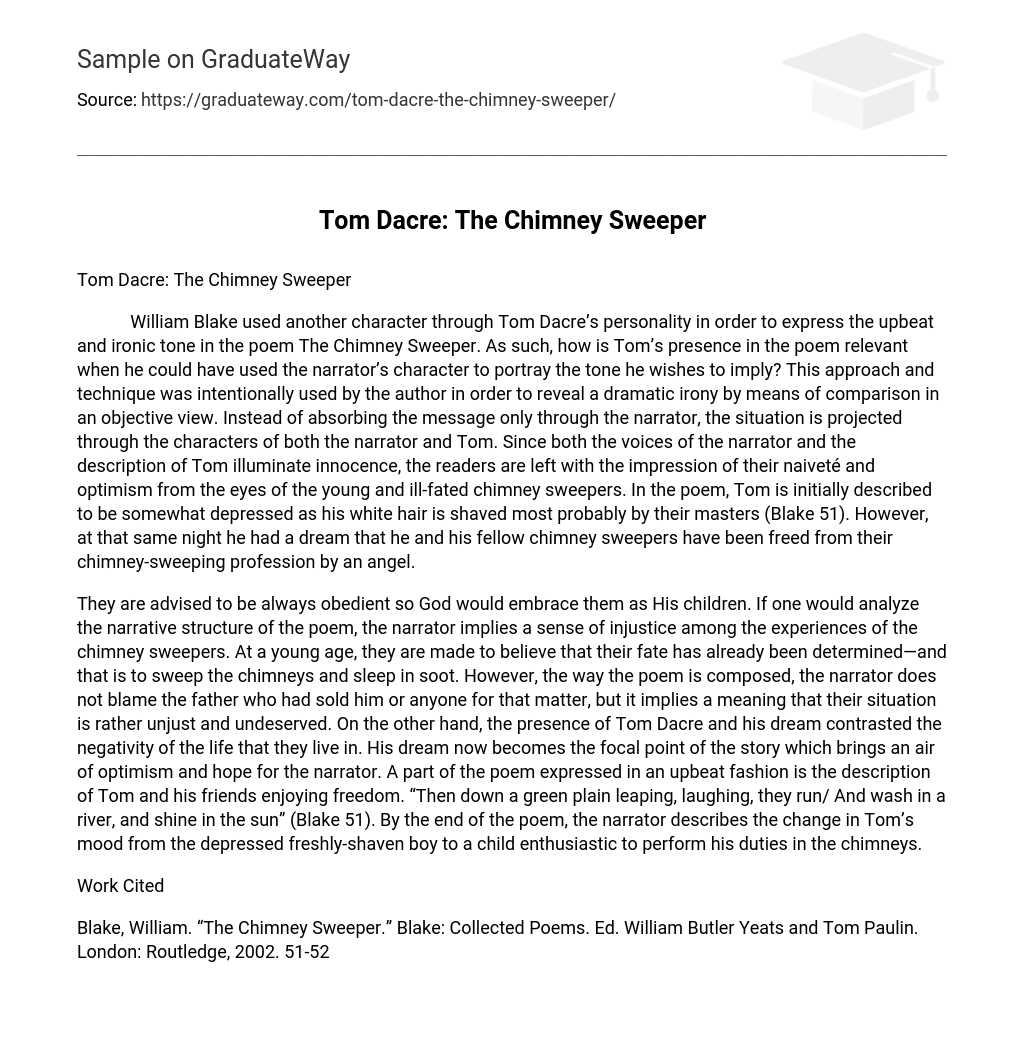William Blake used another character through Tom Dacre’s personality in order to express the upbeat and ironic tone in the poem The Chimney Sweeper. As such, how is Tom’s presence in the poem relevant when he could have used the narrator’s character to portray the tone he wishes to imply? This approach and technique was intentionally used by the author in order to reveal a dramatic irony by means of comparison in an objective view.
Instead of absorbing the message only through the narrator, the situation is projected through the characters of both the narrator and Tom. Since both the voices of the narrator and the description of Tom illuminate innocence, the readers are left with the impression of their naiveté and optimism from the eyes of the young and ill-fated chimney sweepers. In the poem, Tom is initially described to be somewhat depressed as his white hair is shaved most probably by their masters (Blake 51). However, at that same night he had a dream that he and his fellow chimney sweepers have been freed from their chimney-sweeping profession by an angel.
They are advised to be always obedient so God would embrace them as His children. If one would analyze the narrative structure of the poem, the narrator implies a sense of injustice among the experiences of the chimney sweepers. At a young age, they are made to believe that their fate has already been determined—and that is to sweep the chimneys and sleep in soot.
However, the way the poem is composed, the narrator does not blame the father who had sold him or anyone for that matter, but it implies a meaning that their situation is rather unjust and undeserved. On the other hand, the presence of Tom Dacre and his dream contrasted the negativity of the life that they live in. His dream now becomes the focal point of the story which brings an air of optimism and hope for the narrator.
A part of the poem expressed in an upbeat fashion is the description of Tom and his friends enjoying freedom. “Then down a green plain leaping, laughing, they run/ And wash in a river, and shine in the sun” (Blake 51). By the end of the poem, the narrator describes the change in Tom’s mood from the depressed freshly-shaven boy to a child enthusiastic to perform his duties in the chimneys.
Work Cited
- Blake, William. “The Chimney Sweeper.” Blake: Collected Poems. Ed. William Butler Yeats and Tom Paulin. London: Routledge, 2002. 51-52





